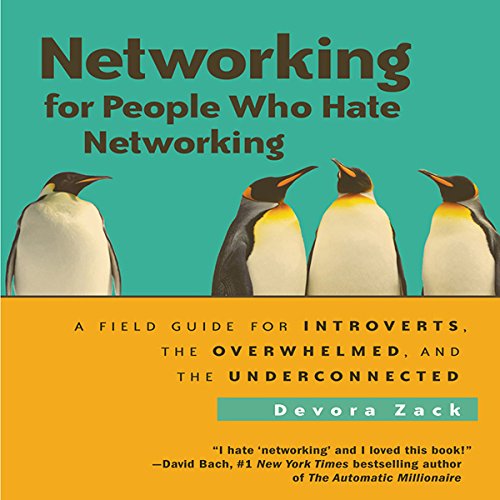Career Tip 23: Respond to Desperation – What to Do When You Don’t Know What Else to Do
What to Do When You Don’t Know What Else to Do.
If you are feeling desperate, remember: Action Produces Results. This is the Tip that The Job Dog uses 100% of the time to help those feeling lost in their job search. Read the research topics below and select two from each category to act upon.
As you read these examples, it is critical to be honest with yourself and ask, “What am I willing to put into my search to locate a great opportunity?”
As you read these examples, it is critical to be honest with yourself and ask, “What am I willing to put into my search to locate a great opportunity?”
Research Topics
People & Networking
- Social Media. Friends on Facebook or your network on LinkedIn. Where are they employed? What do they know about upcoming opportunities within their organizations? What do they know about opportunities at their suppliers or customers?
- Professional Associations. Each professional association provides specialized continuing education. Contact these organizations to determine who is attending their conferences. Which companies are hiring people within your profession?
- Who are the recognized leaders in your field or profession? How might you contact them for advice or job search insights?
- Educators. What educators in technical schools, colleges, or universities might you contact for career insights?
- Past co-workers. Where are they employed today? Past co-workers may have old or new contacts valuable to your search.
- Professional Development Seminars. Attend not only to enhance your skill set, but also to network with other participants.
- Temporary Employment or Professional Contract Agencies. Inquire who is hiring and where you might fit. Temporary work can easily turn into a full-time assignment.
- Local Universities or Health Systems. Determine if you can volunteer or participate in a study, or if they have temporary assignments. All of these possibilities are a foot in the door. These organizations don’t just hire educators or medical professionals; they hire accountants, administrative professionals, facilities and equipment technicians, etc.
- Recruiters. Research the recruiters who specialize in your profession.
- Job Search Groups. There are likely such groups at a local place of worship. Call church/synagogue offices to find such a group. It takes work to find them, yet they are often a goldmine of support.
- People With Whom You Associate or Do Business. Who is your barber, dentist, doctor, lawyer, pastor, close neighbor, relative, sports league friends, etc.? What have you done to get the word out to them about what you offer professionally and which organizations are of interest to you?
- Ask for their advice, for professional insights, or to make an introduction for you.
No one wants to do this much work. That is why you should.
No one wants to do this much work. That is why you should.
In the News
- GlassDoor.com’s best companies to work for. Read reviews.
- Fortune magazine’s 100 best companies list. USA Today articles on the fastest-growing jobs in America.
- Wall Street Journal articles on high-potential or high-growth industries.
- Inc. magazine’s fastest growing private companies. Research any business magazine’s or newspaper’s archives for business trends, well-regarded employers, new inventions, companies experiencing significant growth, new companies in the area, and companies expanding due to contracts they were recently awarded. Remember, you are not looking directly for a job posting. You are researching organizations likely to have future job opportunities.
- Local business journal sections reporting newly hired or promoted people. Newly hired people left a former job that may now be open. Newly hired people may replace existing staff, which can lead to job opportunities.
- Lowest unemployment cities, regions, states. (http://www.bls.gov/web/laus/laumstrk.htm)
- Every state provides a database of its economic growth trends. (http://www.bls.gov) (bea.gov) (www.data.worldbank.org)
- Fastest growing professions that might use your core competencies (e.g., you are a manufacturing electrical engineer and note the growth of solar and wind engineering opportunities). (http://www.bls.gov/ooh/fastest-growing.htm)
- Entrepreneurial opportunities: America’s best franchise list.
- Fastest growing companies in the US, and the fastest growing companies in your city, state.
- Search for national companies experiencing significant growth that may have a local office in your area.
- New businesses that have opened within the last couple of years in your area. Perhaps they are now getting ready to expand and hire in the near future. What have you done to make productive contacts at those companies? Your Chamber of Commerce can be a great resource. Ask if you can be a guest at a meeting of Chamber members.
- Organizations that are on your area’s best employer, largest employer, or fasting growing employer lists.
- Research grants recently received in your geographic area. Recall that research grants also require administrative and technical staff. You can wait for a job to be posted and apply with hundreds of others – or you can write to the grant manager/recipient and explain why you are interested in working on that team. (https://www.usaspending.gov/Pages/Default.aspx)
- The reference librarian at your local library or at a local college to identify expanded services, books, databases, newspapers, etc. that are not publicly available to individuals. Libraries also give you access to subscription search tools and databases that you would otherwise have to purchase. (Volunteering at a library can also add to your resume and work experience.)
- Assuming you have left past employers on a positive and professional note, what have you done to research those employers to determine who and how they might help you in your job search? Who were their suppliers and customers? What have you done to connect with those companies?
- Great opportunities in other areas of the country. We understand you may not want to relocate. Yet, what if you had to? Research where you might consider moving and opportunities that might be emerging there.
- Best cities for new college graduates to get a first job. Forbes and Bloomberg provide this information.
- Best places to live if you want a state or federal job opportunity.
- Industry or professional journals/websites to browse through each week for updates.
- Out-of-town newspapers in areas of the country known to be technical epicenters for your profession. Identify information that may not hit the national news.
- Highest paying professions without a college degree. Forbes and Kiplinger provide this information.
- Jobs that lawyers and teachers migrate to when they change career paths.
Skill Development
- What advanced education options or continuing education course might you pursue that would enhance your resume?
- What companies or organizations are attending job fairs in your area? Do they also have an office in your area? Identify all local job fairs in the last 6–12 months. What can you learn or even predict from this list?
- What advanced certifications within your profession would enhance your employability? What college courses would improve your 5-, 10-, 20-year-old education, especially computer skills?
- What community volunteering options exist in your area that might lead to networking or professional connections? Consider hospitals, community pantries, youth athletics, etc. (http://www.voa.org)
- What parallel job paths do people in your profession also pursue? How would you enhance your employability in related, alternative professional jobs?
- What professional meetings or tradeshows would increase your professional knowledge?
- What networking events would put you into professional contact situations? Networking events in related or other professions can also produce contacts. Can you volunteer at professional organization events to improve your industry knowledge and improve the number of your networking contacts? Even volunteering to set up or clean up can lead to meeting people.
- What newly emerging software applications does your profession use? What have you done to improve your related skill set? What certification levels are the industry standards for this software?
- What continuing education courses could you complete during your period of unemployment to demonstrate you are up-to-date professionally and a continuous learner – and that might lead to new opportunities?
- What foreign language skills may prove beneficial within your profession?
A Final Comment
No one does all this research. However, if you are not doing any of this research, you are missing readily available opportunities.
A Final Story
Sam Faught, a former client who is now in medical school, made the following comment after he reviewed this Tip. “I got better at scientific research when I stopped only exploring things that I thought would work. I began pursuing things that came to mind – and that probably wouldn’t work – but might. I then found answers – completely unexpected ones. I learned you need to generate a lot of options, and then explore a lot of things that don’t work to get to the unexpected things that do work.” He went on to say this approach likely also applies to job and career research. We agree.
Recommended Reading & Listening
Even people who hate networking can learn to do so enthusiastically.
–The Job Dog
Checkpoint
Your ability to land that next job may depend upon your willingness to work on at least one item on this list per day. Begin today.











